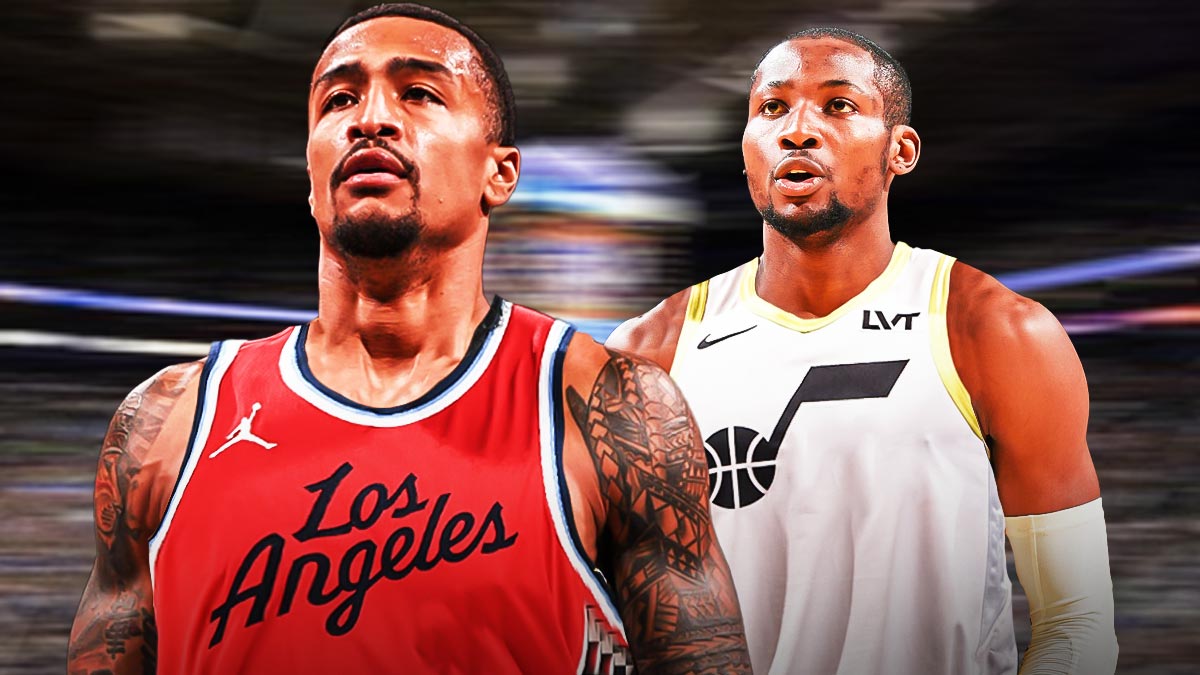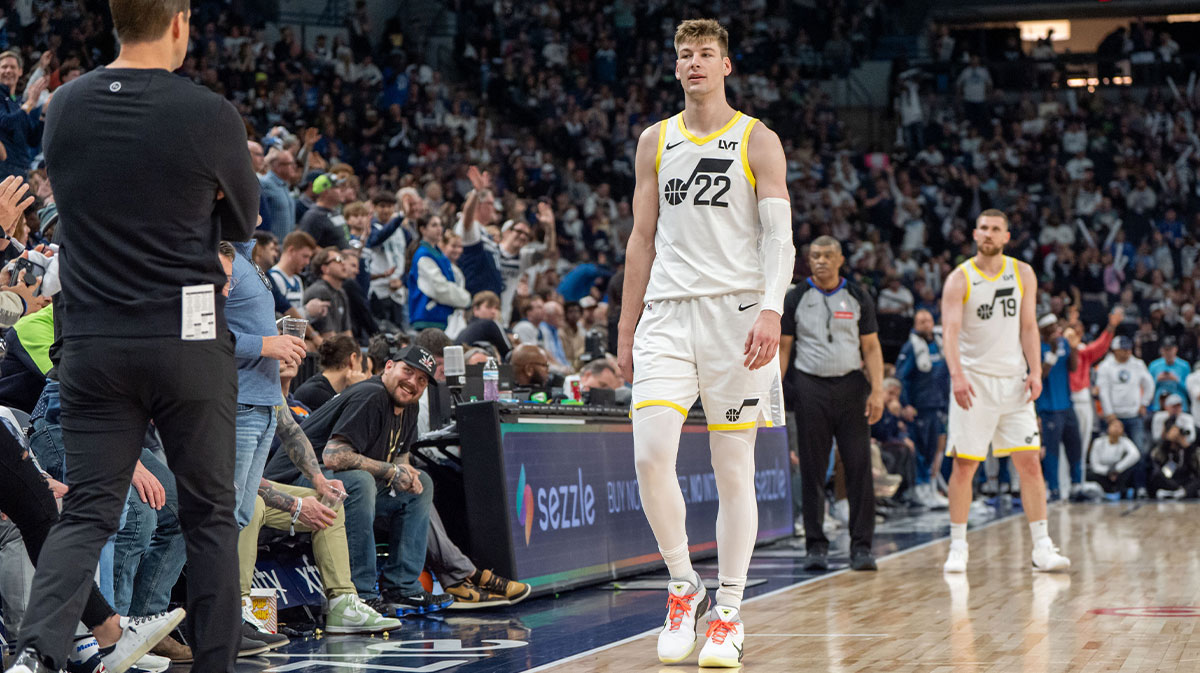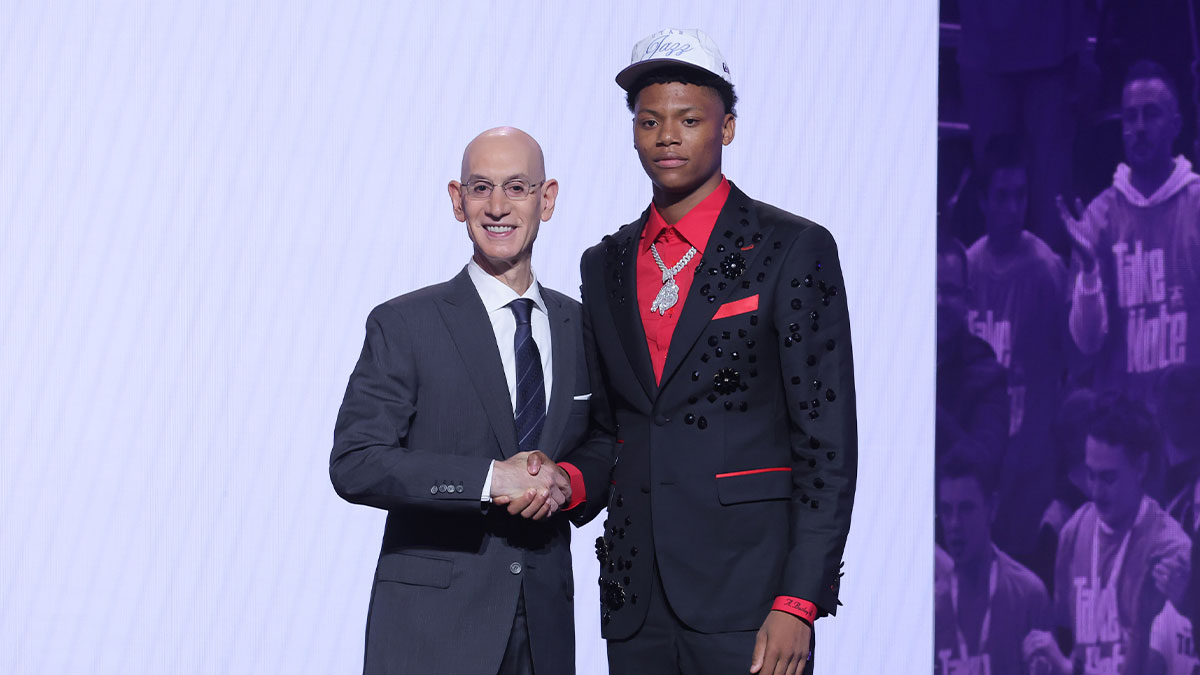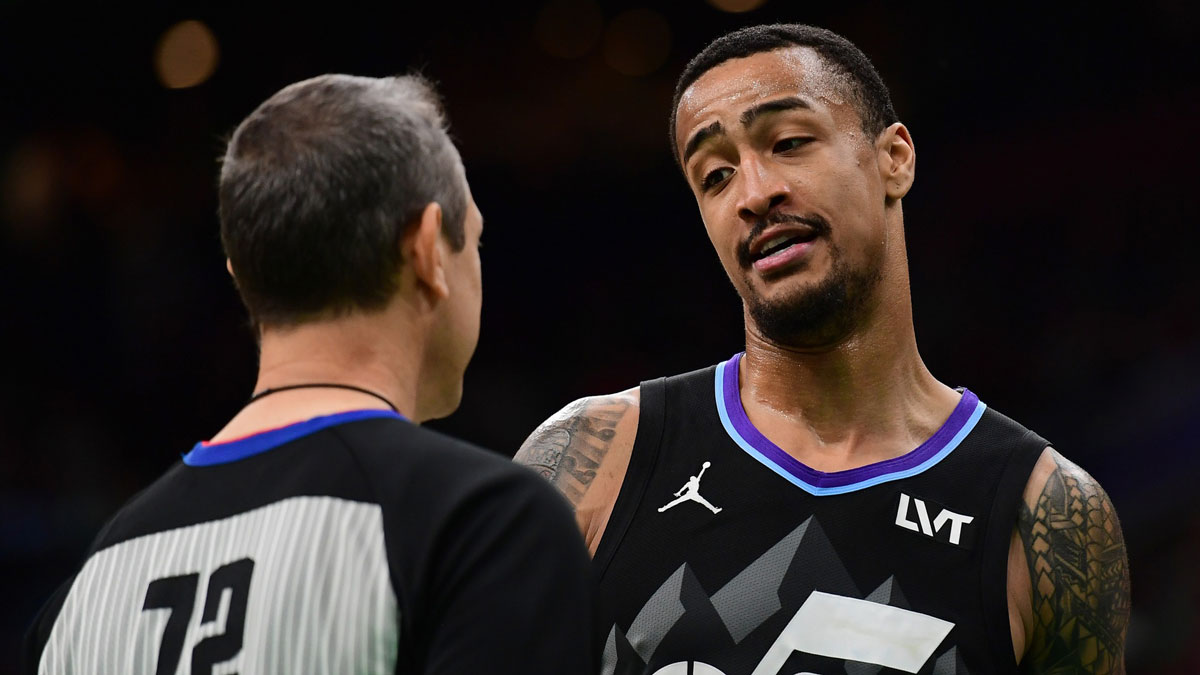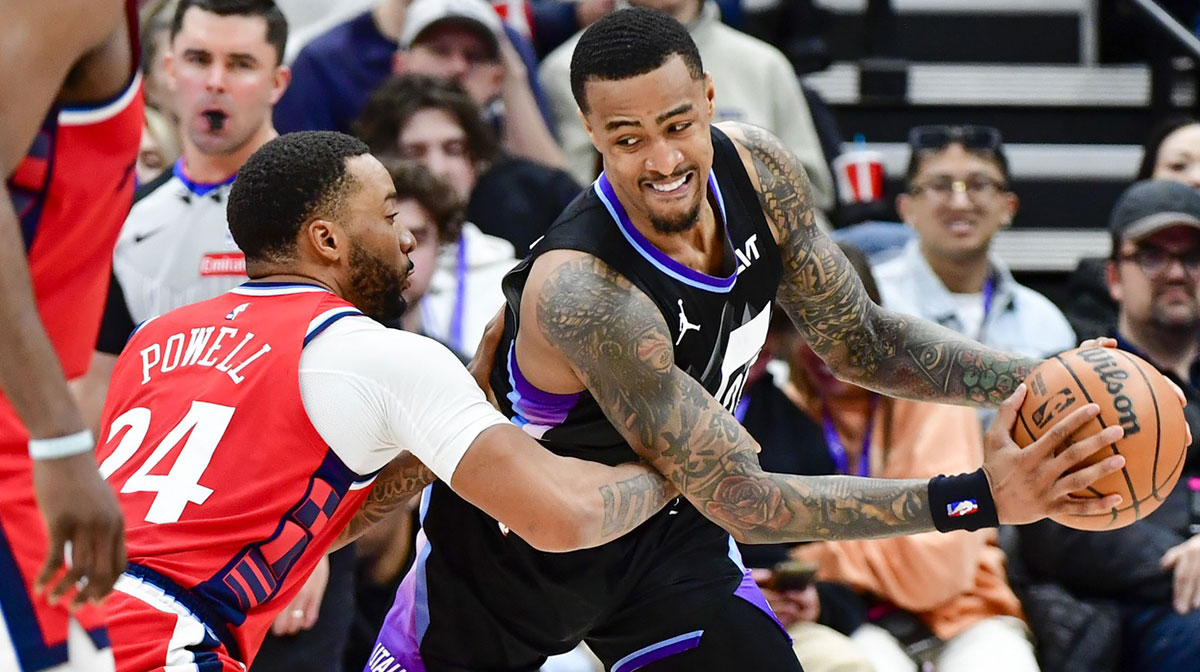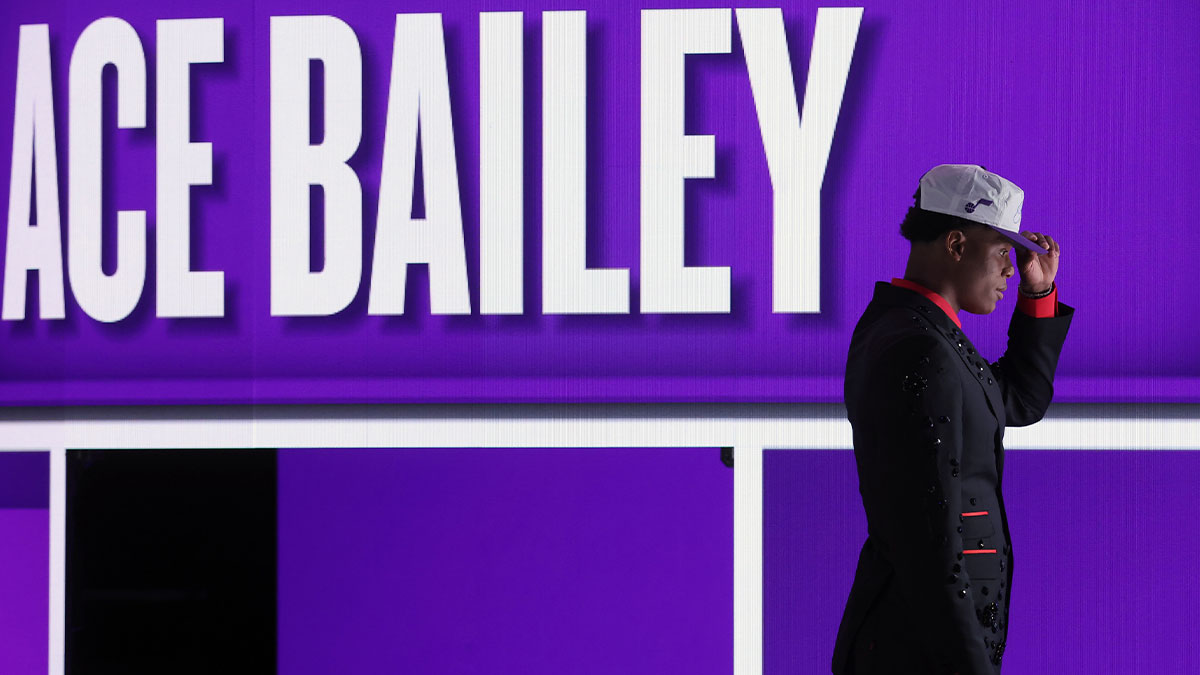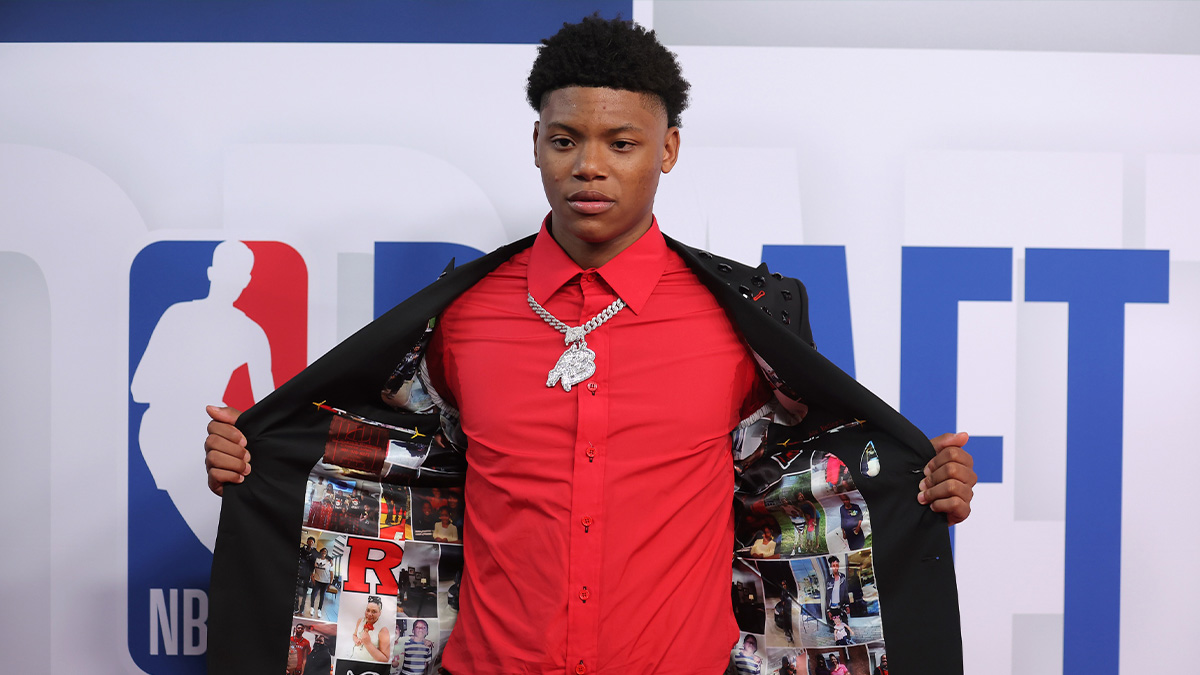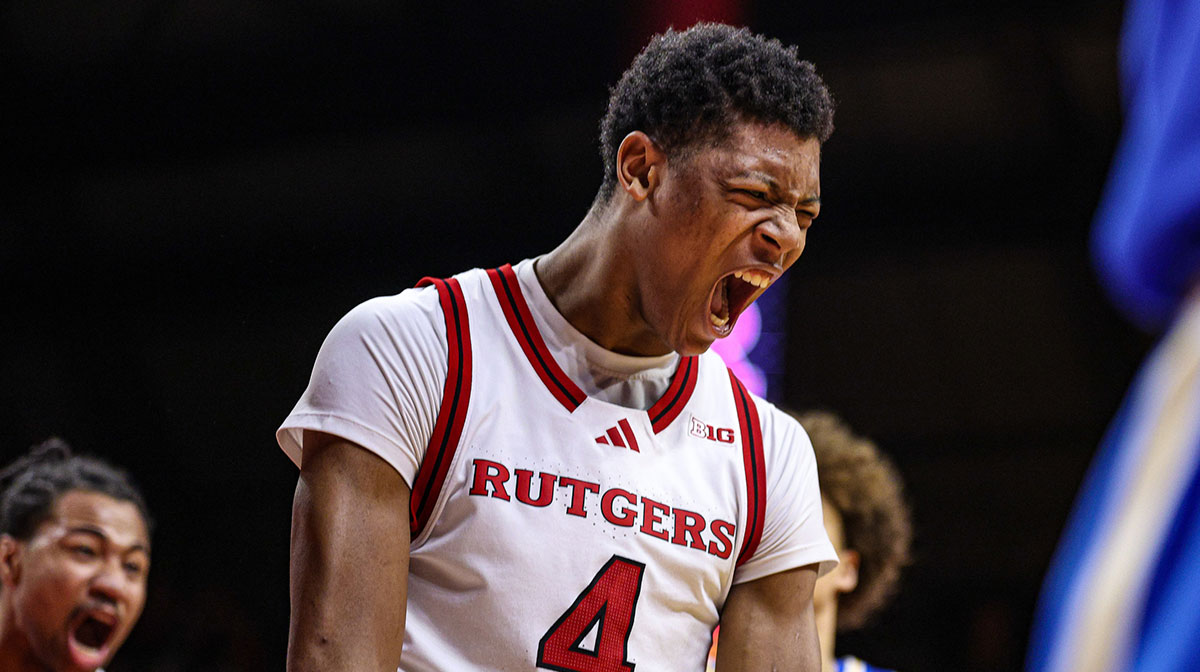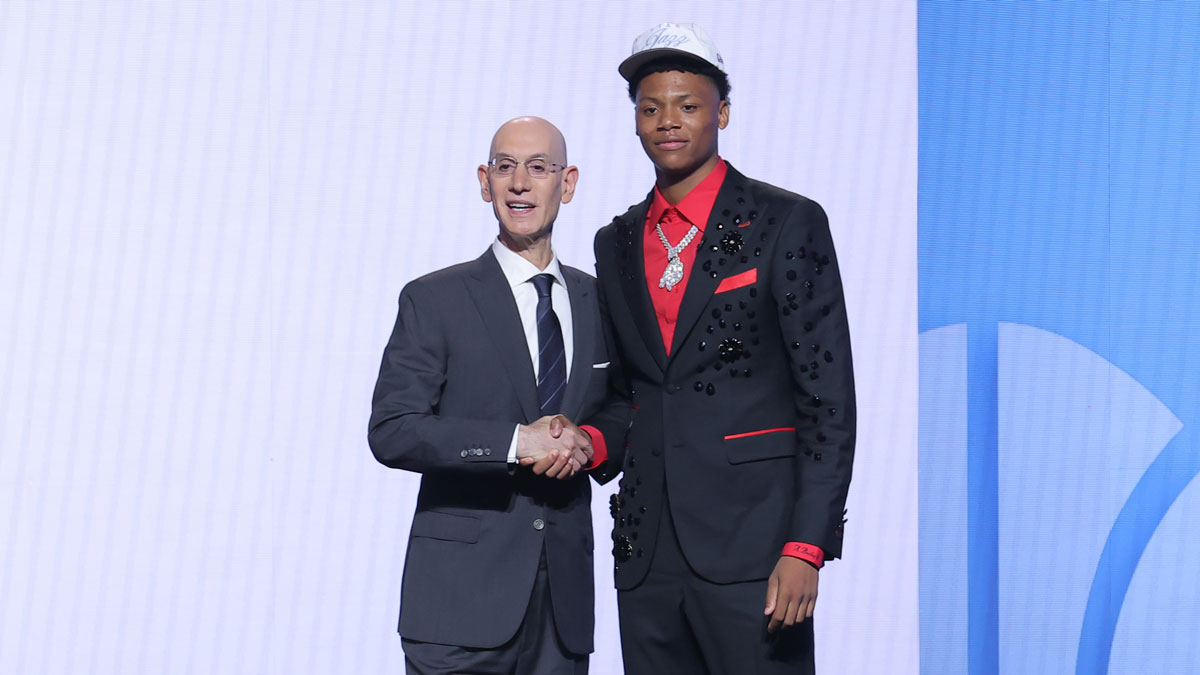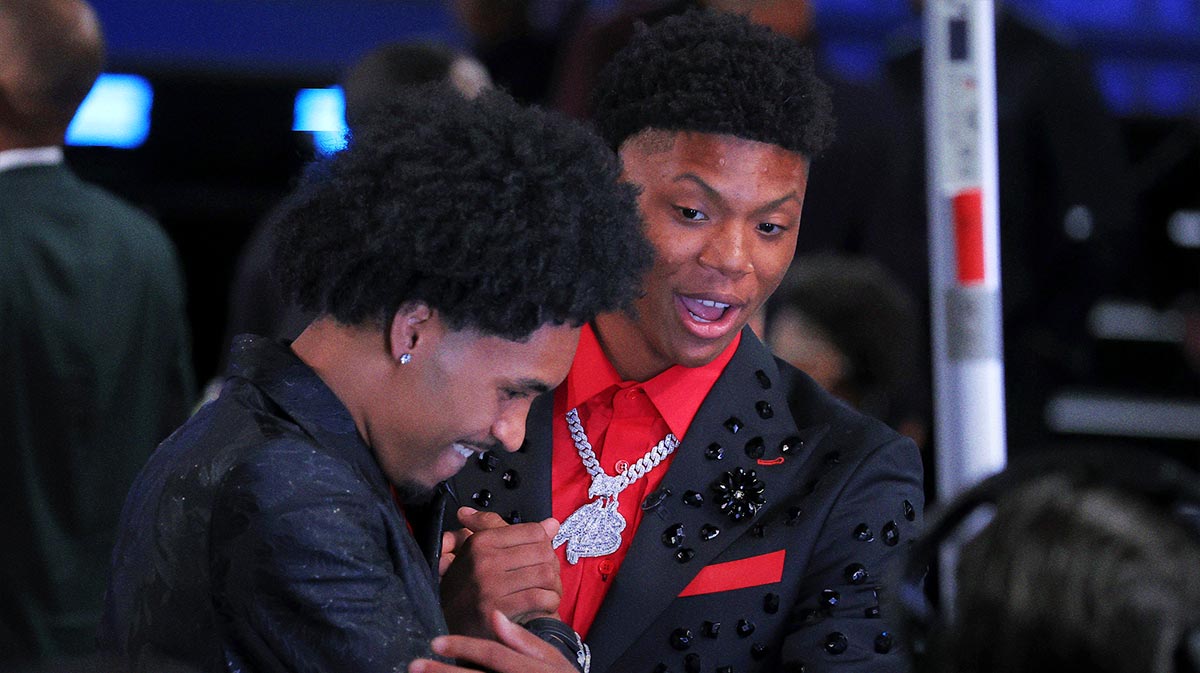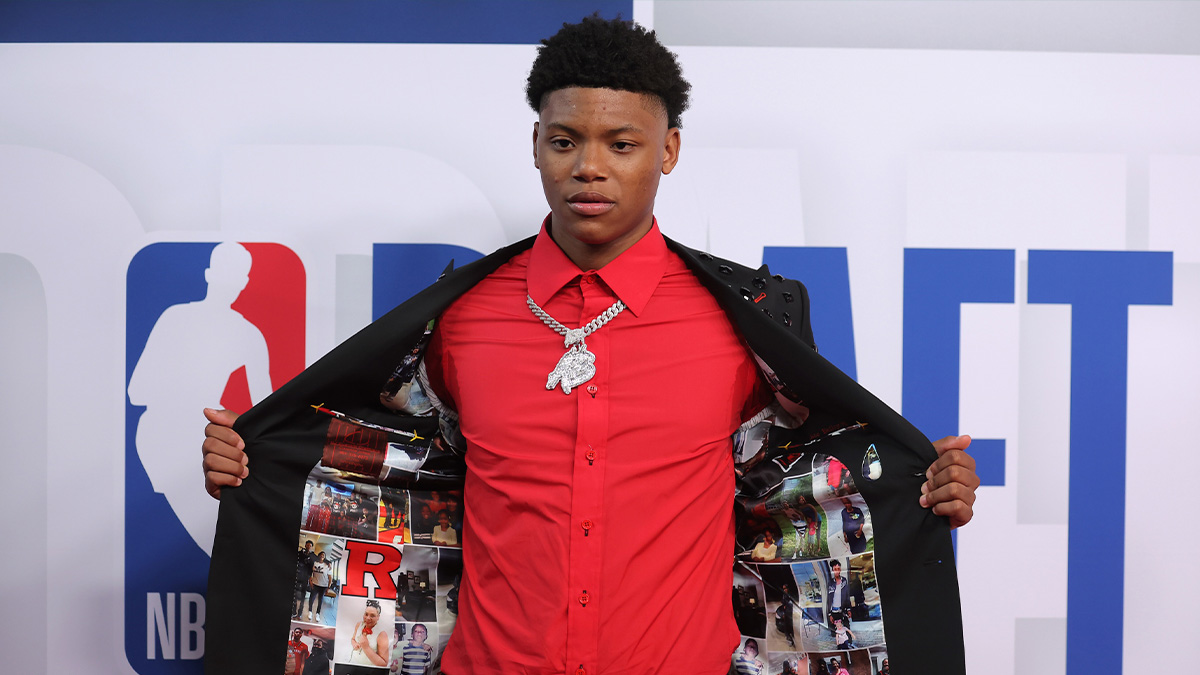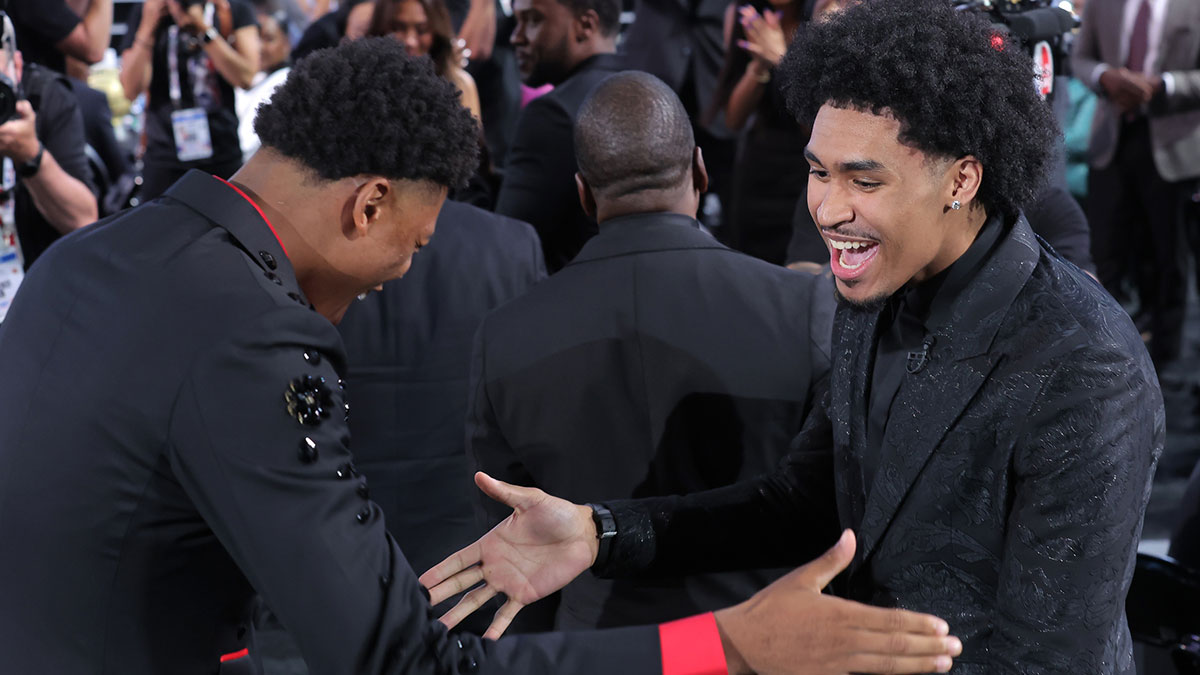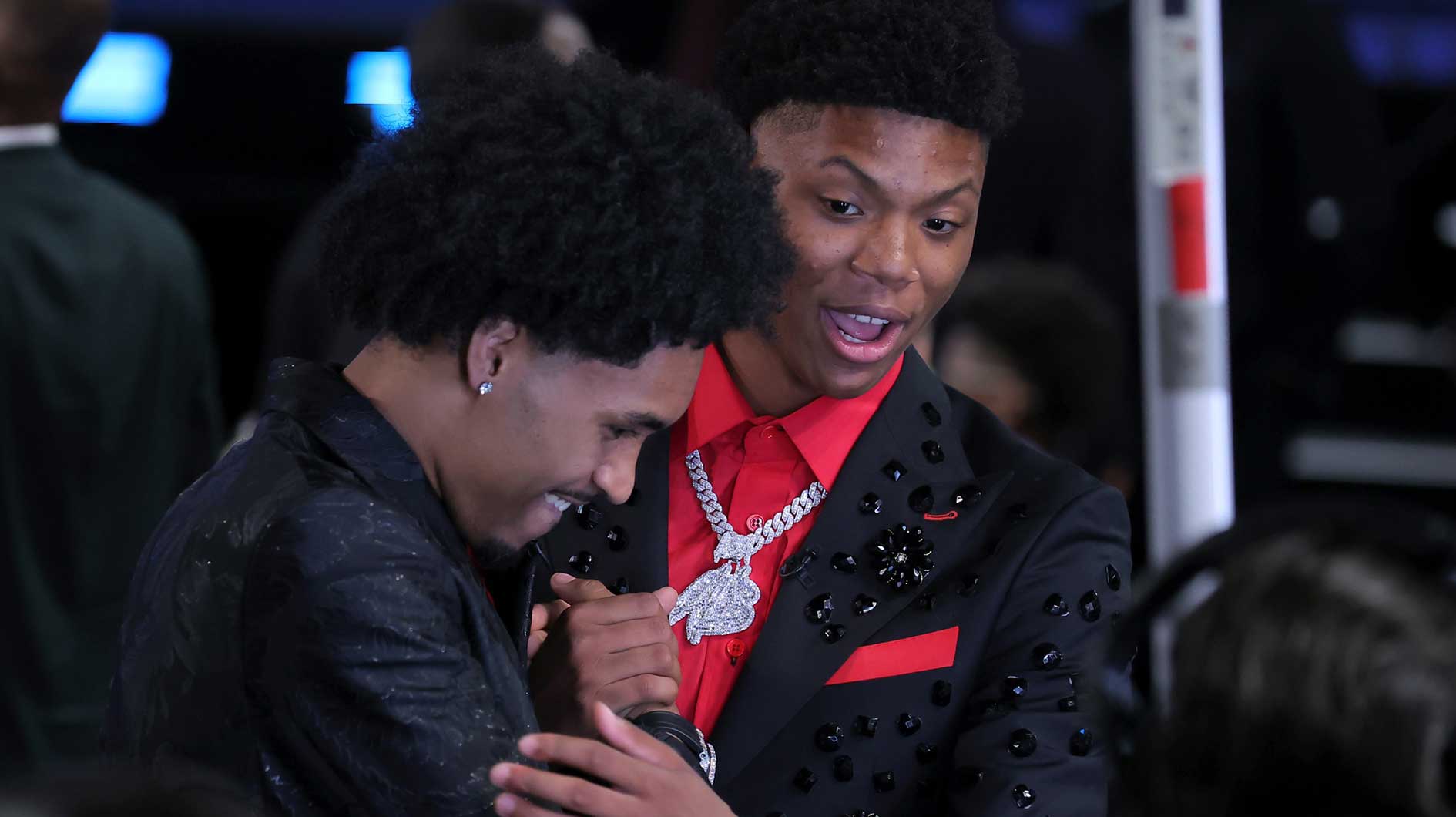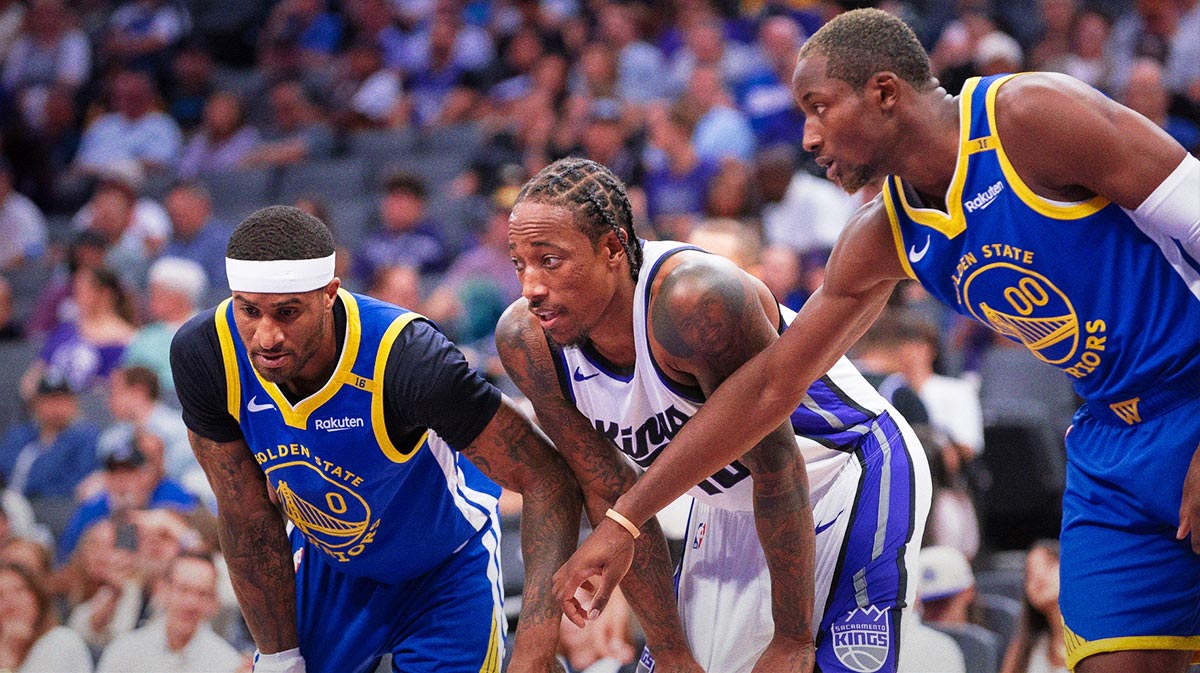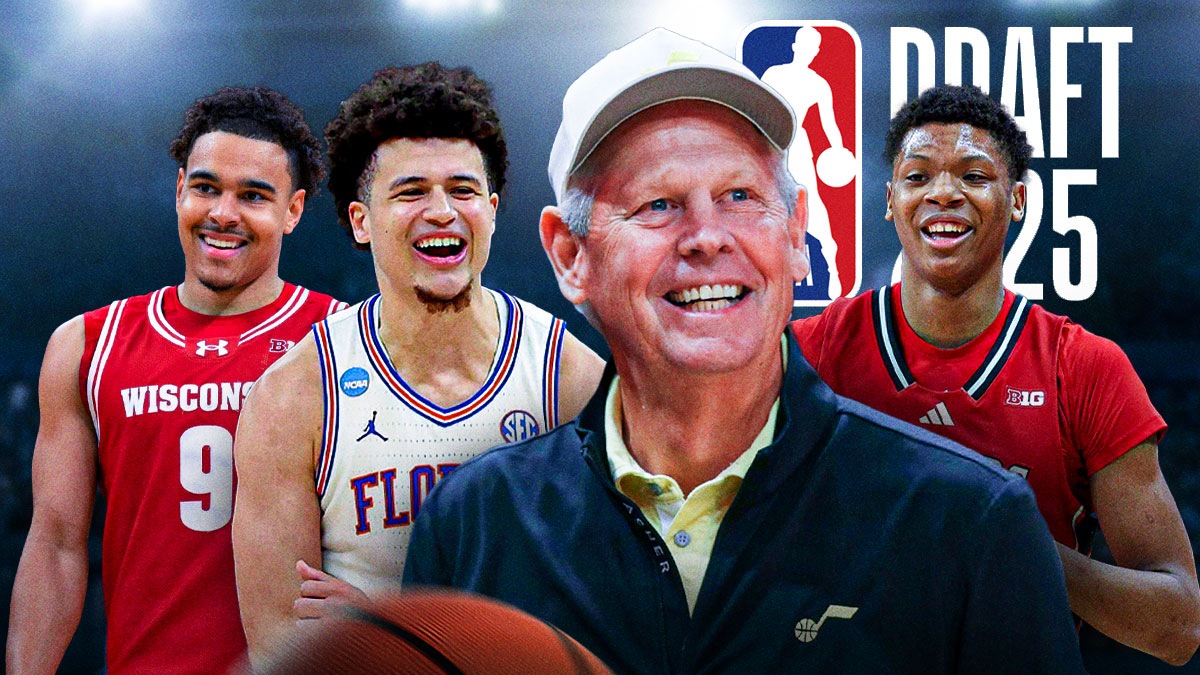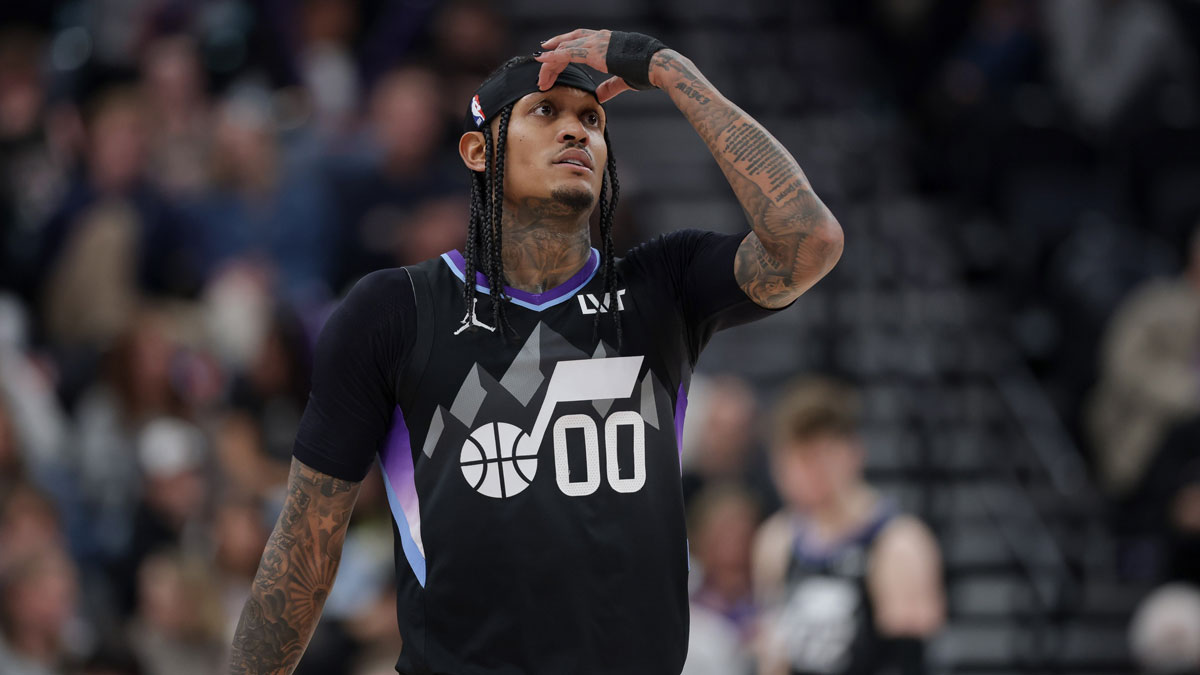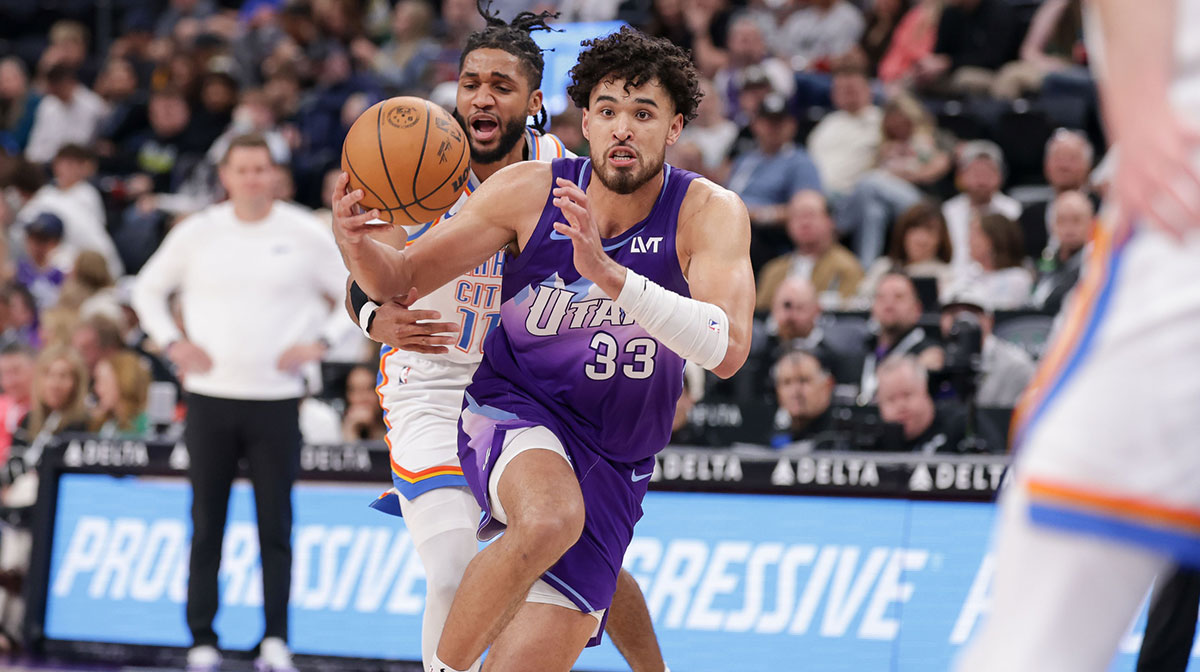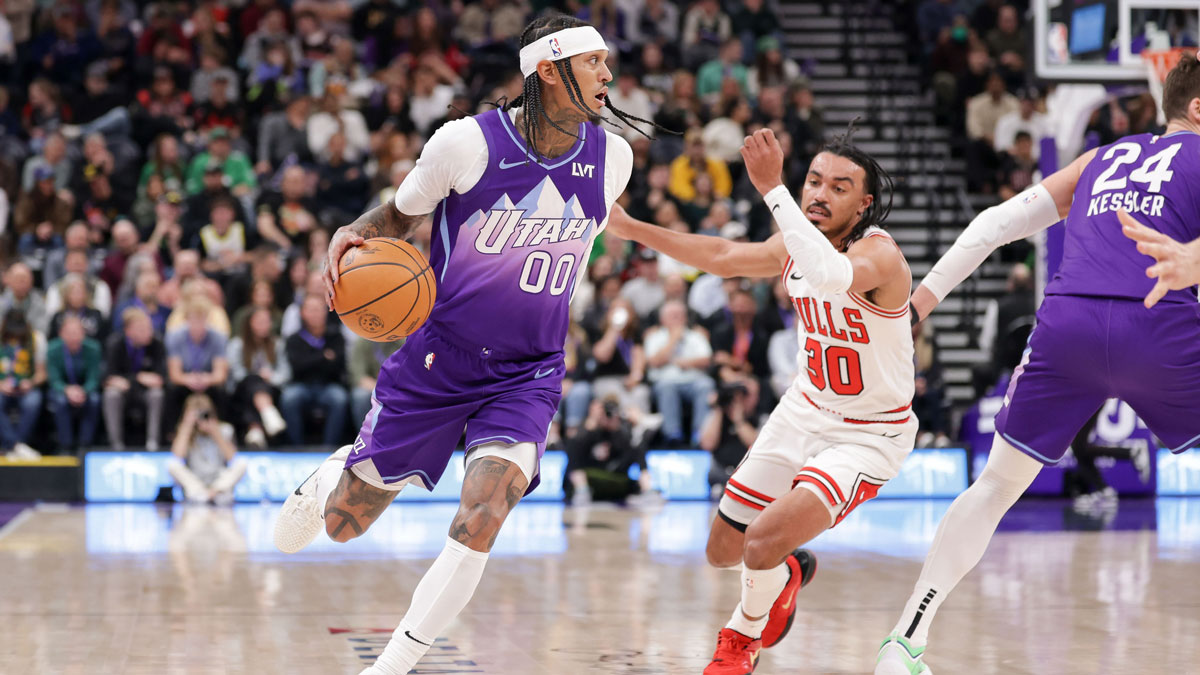Donovan Mitchell did not have a lot of fanfare surrounding him ahead of the 2017 NBA Draft. Markelle Fultz and Lonzo Ball got most of the attention. In the strange world of the NBA, Fultz and Ball have now been reduced to mere afterthoughts while Mitchell is busy hugging the headlines with one smash hit of a performance in the playoffs after another.
Fultz and Ball also share a common quandary in that they both can’t hit consistent jumpers – you know, an actual skill that guards in the NBA should have in the bag, or the same skill Mitchell has seemingly mastered in under a year of play in the pro ranks. At this point, Mitchell has Fultz and Ball beat in terms of stature in the NBA.
If the NBA were to re-draft last year’s set of rookies, Mitchell would most certainly be a top three pick at the very least. With the benefit of hindsight, the Nuggets probably would not have robbed the NBA of a salivating Donovan Mitchell-Nikola Jokic combo if they knew that that 13th first-round pick would turn into a one-man wrecking crew in the playoffs who almost single-handedly whipped a trio of Oklahoma City Thunder All-Stars that included the reigning league MVP.
Right now, Mitchell is the face of the surprising Utah franchise that few thought would recover this fast after it was left in the cold by Gordon Hayward — the former face of their franchise — last summer.
Before Mitchell arrived in Salt Lake City, the Jazz were having one of the organization’s toughest offseasons. Hayward was at a career crossroads. As a free agent, he had the power to decide where he would take his talents to.
Of course, the Jazz were always going to be an option. After all, it was Utah which drafted and helped him develop into an All-Star. Utah head coach Quin Snyder also was a huge factor in elevating the play of Hayward, who once led the team in win shares in 2015-16.
While Snyder did not go on public to express his frustrations of Hayward’s decision to spurn Salt Lake City for Boston, his former forward’s departure ate him inside.
Per Gordon Monson of The Salt Lake Tribune:
For good reasons, he won't come out and make any such pronouncement — publicly, Snyder has been nothing but gracious — but those close to to the Jazz coach describe him as baffled and hurt by Hayward's decision.
Snyder is more responsible for Hayward's development than anyone other than Hayward himself. It was assistant coach Johnnie Bryant who essentially spent last offseason assisting Hayward at every turn and under whose immediate tutoring Hayward made advancements and corrections to his overall game. All of that, and earlier development, was done through the broader supervision, direction and approval of Snyder.
Snyder does not have a monopoly of resentment caused by the acrimonious ending of Utah’s partnership with Hayward. The entire Jazz fanbase shared Snyder’s disappointment, though, they showed it more explicitly by burning No. 20 Utah jerseys and by raining invectives like angry sailors online at Hayward and his family. It’s ridiculous how a whole city’s populace could feel dejected over someone exercising a completely legal and harmless prerogative, but in professional sports, fans are the crazy ex-girlfriends who can't get over their former lovers.
What added to Utah’s pain was that Hayward ditched the team at a time when the Jazz were on the precipice of achieving greater things. After four-straight seasons of missing the playoffs and finishing with losing records over that stretch, the Jazz went 51-31 in the 2016-17 campaign and punched a ticket to the postseason as a No. 5 seed.
Although they were swept in the second round by the Golden State Warriors, the Jazz showed that under Snyder’s watch, they were headed somewhere. The foundation for Utah's future success was laid out that season only to get cratered by Hayward’s controversial career move.
With Hayward, the Jazz had a go-to offensive force who also gives the team its identity. Without Hayward, the Jazz were still decent with Rudy Gobert as their new anchor, but they lacked the on-court leadership provided by the former Butler Bulldog.
The Jazz did not have a lottery pick last year, but they traded Trey Lyles to Denver to move up the draft board. They did not know it then, but the Jazz just made one of the best decisions in the history of their franchise.
That pick turned out to be Donovan Mitchell, who, whether he is aware of it or not, is doing more than just invigorate the Jazz. With how his rookie year is playing out, Mitchell is rendering Hayward as nothing more than a thing of the past for Utah instead of being an emotional drag for the team.
Sure, there will always be the thought of what could have been if Hayward stayed and teamed up with Mitchell, but so long as the Jazz are winning and proving they can succeed with Mitchell as the focal point, that thought will always be a fun practice of wishful thinking rather than a bitter walk down the what-if lane.
All Mitchell needed was confidence from his coach and teammates to lift off in the NBA. Snyder did not hesitate to give the keys to Utah’s offense to Mitchell, who repaid the trust by driving the Jazz all the way into the postseason.
Mitchell averaged 9.3 points in his first seven games in the league. After that, he did not average fewer than 18.1 points in a month for the rest of the regular season.
In the playoffs, Mitchell’s rookie legend continues to grow.
In Game 6 of the first round of the series between the Jazz and the Thunder, Mitchell made it rain. He erupted for 38 points in the game. The third quarter saw him repeatedly punch the Thunder in the mouth by almost scoring at will, going 8-for-10 from the field and 3-for-3 from deep in that period to set a new franchise record for most points in a quarter during the playoffs with 22 markers.
When all was said and done in the first round after the final buzzer of the series sounded, no Jazz fan was thinking of Gordon Hayward. It’s now all about Mitchell, and that’s unlikely to change anytime soon.

